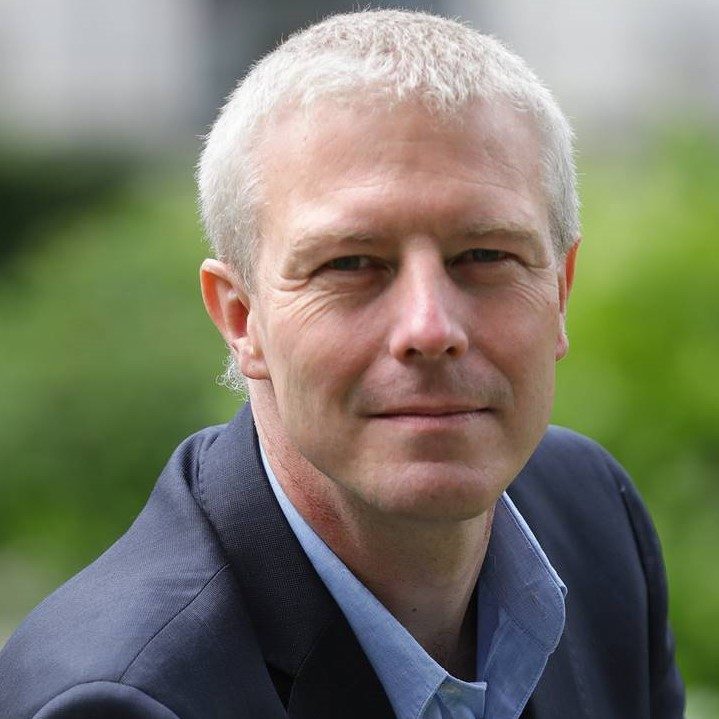
Affiliation:
Bundeswehr Hospital Berlin, Department for Psychiatry, Psychotherapy and Psychotraumatology, Berlin, Germany
Short bio:
Studies & Qualifications
- 1994-1995: Friedrich Alexander University Erlangen Nuremberg (Political Science & Art History)
- 1996: Universidad Barcelona (Education and Psychology)
- 1995-2001: Ludwig Maximilians University Munich (Psychology)
- 2009: PhD at Ludwig Maximilian University of Munich
- 2010: License to practice as a psychotherapist
- 2022: Assoc. Prof. at Charité Berlin
Work Experience
- 1999-2001: Fundalam, Cartagena (Colombia)
- Development, implementation, and evaluation of an intervention project against domestic violence in marginal city districts
- Advice & crisis intervention for/with traumatized war refugees
- 2001-2003: Kinderhaus München (Children’s Home in Munich)
- Diagnostics, individual therapy & crisis intervention
- 2003-2005: Zentrum für Nachwuchsgewinnung (Center for Recruiting Young Talent in Munich)
- Aptitude diagnostics, personnel selection & test development
- 2006-2017: Lectures for Diploma
- Lecturer in statistics, clinical psychology, intercultural and social competence, and conflict management
- Supervision of bachelor and master theses
- 2006-2013: Flugmedizinisches Institut Fürstenfeldbruck (Aviation Medicine Institute)
- Development of therapeutic measures for air sickness and other behavioral disorders for pilots
- Fitness to fly and perception examinations of pilots, crisis intervention, and psychotherapy
- 2011 to date: Psychotherapeutic practice
- Since 2013: Bundeswehrkrankenhaus Berlin (Bundeswehr Hospital Berlin)
- Research
- Psychotherapy
- Since 2015: Charité Berlin
- Lecturer
- Supervision of doctoral and master theses
Title:
Mental disorders after military deployments compared to rescue services in major disaster events
Abstract:
Introduction: Services with special security tasks have an increased risk of developing a work-related mental disorder. The aim of this study is to identify occupational group differences in mental stress after major incidents in order to optimize the preparation and follow-up measures.
Methods: Included were male combat soldiers stationed in Afghanistan, as well as police officers and firefighters deployed in response to large-scale deliberate disasters (terrorist attack or drive-by-the-kill) and large-scale natural disasters (flood disasters and earthquake relief efforts). Soldiers who had not experienced any military-specific critical event on deployment served as a military comparison group. The comparison group of the other task forces consists of colleagues from the same units who were not involved in the events. The data collection is running. At this time, a total of N = 1,013 task forces were involved. Since no baseline can be determined for the public sector, the information collected using questionnaires is given here as a prevalence six months after the event.
Results: The incidence in military personnel with critical events compared to the group without such events was 6.4% vs. 1.1% for PTSD with an odds ratio (OR) of 6.2, for depression 7.0 vs. 1.1% (OR 6.5) and for anxiety disorders 15.2% vs 2.8% (OR 6.6).
The prevalence of emergency services in intentionally caused incidents is 1.7% vs. 1.2% (OR 1.5) for PTSD and 22.5% vs. 5.8% (OR 4.7) for anxiety disorders.
The prevalence of responders in unintentionally caused harm situations is 1.0% vs. 1.1% for PTSD and 6.5% vs. 5.8% for anxiety disorders.
Discussion: There is an emerging trend that military personnel are more likely to develop PTSD, while other responders are more likely to develop anxiety disorders after intentional events. Overall, the sample is still too small to look for differences in occupational groups or genders.
